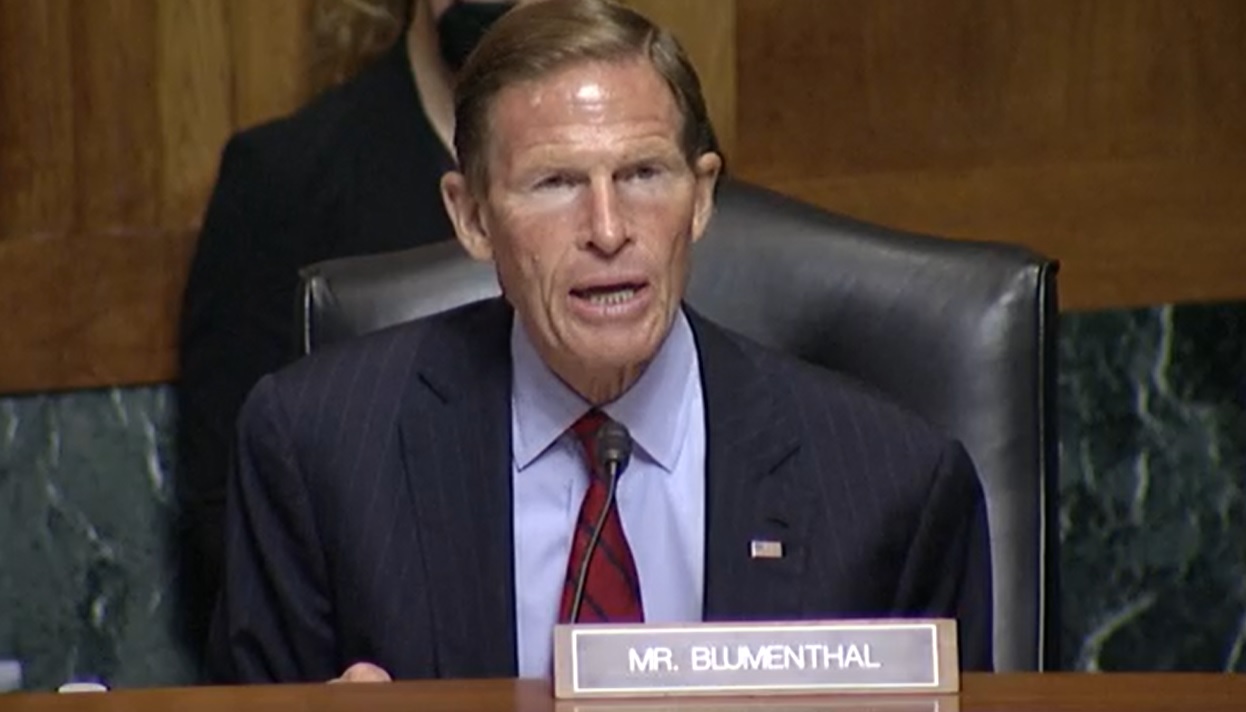Sen. Blumenthal Blasts Google Ads
Said company is skewing search, failing to weed out fraud and abuse

The smarter way to stay on top of broadcasting and cable industry. Sign up below
You are now subscribed
Your newsletter sign-up was successful
In a move that broadcasters can leverage to make their point about the relative value of their ad platform versus online, Sen. Richard Blumenthal (D-Conn.) is slamming Google Ads, saying it has a troubling record of not weeding out fraud and abuse and calling on the company to pony up info in its ad practices and policies.
Blumenthal, like many on the Hill, has been a sharp critic of edge provider privacy and marketing practices in general.
In a letter to Google CEO Sundar Pichai, Blumenthal said that Google has "routinely failed to address dangerous scams, impersonation, cybercrime, and other fraud on its extensive advertising network."
Also: Bills Prompt Faceoff Between Big Tech, Antitrust Groups
He also echoed past criticism's of Google for paid ad placement on Google pushing organic results "n far down below often poorly-labeled ad placements" and a new one about Google ads that once were marked with "bright badges" and colors to show they were ads now noted with "a minimal and smaller label that is easy to miss."
He said Google's ad practices are a significant cost for small businesses and threaten local competition. "Combined with Google’s increased focused on paid ads over real answers, the result is to bury smaller competitors," he told Pichai.
Either that, he said, or those businesses have to buy expensive ads to get to the top of search results, which he called an "onerous burden and indefensible tax" on those small businesses.
He said that Google has not adequately protected the site and its users against fraud and abuse.
He wants the company by September 2 to answer the following:
"1.) Google continues to allow advertisements that impersonate government agencies, mislead consumers, promote dangerous products, and violate its terms of services. What changes does Google intend to make to its advertising review and enforcement process to prevent misleading or fraudulent ads from appearing to consumers?"
"2.) What is Google’s justification for Google’s search engine results page’s move
towards a less obvious distinction between paid and organic search results?
"3.) Has Google conducted research on whether visitors easily distinguish ads on the
Google search engine results page from organic search results?
"4.) Why does Google enable large companies to place advertisements for keywords,
trademarks, and brands names associated with local and small businesses?
"5.) What percentage of keyword-driven Google Ads revenue is derived from brands
bidding on their own name or trademark, or brands bidding on a competitor's name or trademark?
"6.) Has Google conducted research into how often consumers mistakenly visit the site of, or place a call to, a competitor or fraudulent advertiser due to misleading or
impersonating ads? What data does it use to review its policies and enforcement with respect to misrepresentation?
"7.) Google has increasingly used artificial intelligence to drive ad placements. What
protections are in place that prevent this process from unintentional "learning" to
place ads in a manner that would create consumer confusion or facilitate fraud?"
Blumenthal is a co-sponsor of a bill, The Competition and Transparency in Digital Advertising Act, that would impose restrictions on the biggest players in the digital advertising market. ■
The smarter way to stay on top of broadcasting and cable industry. Sign up below
Contributing editor John Eggerton has been an editor and/or writer on media regulation, legislation and policy for over four decades, including covering the FCC, FTC, Congress, the major media trade associations, and the federal courts. In addition to Multichannel News and Broadcasting + Cable, his work has appeared in Radio World, TV Technology, TV Fax, This Week in Consumer Electronics, Variety and the Encyclopedia Britannica.

